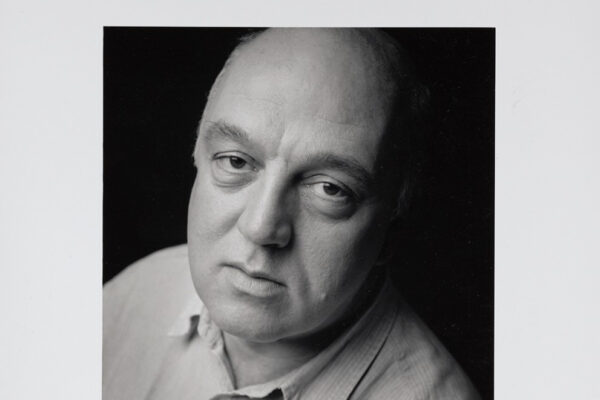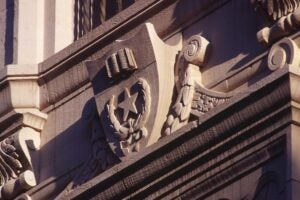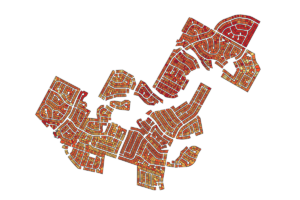AUSTIN, Texas — The archive of the English poet, journalist and literary critic James Fenton is coming to the Harry Ransom Center at The University of Texas at Austin.
Fenton’s body of work traces the political upheavals of our time, including the regime of Ayatollah Ruhollah Khomeini, the suppression of political protest in China’s Tiananmen Square, and Northern Ireland’s fratricidal bloodletting.
His papers include notebooks and loose manuscript and typescript drafts spanning his career as a journalist, critic and poet. Letters within the Fenton papers document his lifelong friendship with his Oxford tutor, John Fuller, and with leading writers of his generation, including Martin Amis, Julian Barnes, Christopher Hitchens, Ian McEwan, Redmond O’Hanlon and Craig Raine, as well as with his partner, Darryl Pinckney.
“James Fenton’s politically aware and morally rigorous poems are a powerful response to this continuing story of violent upheaval in our own more recent history,” said Harry Ransom Center Director Steve Enniss. “In his poems, James Fenton bears witness to the collective traumas of the 20th century, and for generations to come his poems will be read and reread for the way they transform that experience into art.”
The Ransom Center holds the papers of numerous writers displaced by the wars of the 20th century, ranging from the Polish-born Isaac Bashevis Singer, to the Japanese-born Kazuo Ishiguro, and the Czech-born Tom Stoppard.
Fenton received the Whitbread Prize for Poetry for “Out of Danger” in 1994, and that same year he was elected to Oxford’s prestigious Chair of Poetry. In 2007, Fenton was awarded the Queen’s Gold Medal for Poetry.
His 1982 collection “The Memory of War” secured his reputation as a chronicler of the midcentury’s wars. Fenton won the Geoffrey Faber Memorial Prize for his next collection, “Children in Exile: Poems 1968-1984,” and in the mid-1980s he contributed to the adaptation of the English language libretto for “Les Misérables.”
Author Ian McEwan, whose papers are also held by the Ransom Center, has noted how Fenton’s “long experience as war correspondent, journalist and traveler has given him an unmatched range of subject matter – war and revolution, the dementia of collective passions, reflections on fate, and love.” McEwan writes that Fenton “… has written some of the most beautiful love poems of our times.”
Fenton was born in Lincoln, England, in 1949 and attended Oxford University, where he won the Newdigate Prize for undergraduate verse during his first year. He studied under the poet John Fuller, author of the Booker Prize-winning novel, “Flying to Nowhere” (1983), and became friends with fellow students Martin Amis and Christopher Hitchens. After graduation, Fenton reported as a freelance writer on the U.S. withdrawal from Vietnam and the final days of the Lon Nol regime in Cambodia. On his return to England, he worked as a political and literary reporter for the New Statesman and later as a correspondent for The Guardian. For five years he was the theater critic for The Sunday Times, and from 1984 to 1986 chief book reviewer for The Times.
Fenton’s papers join those of American and British poets such as Dylan Thomas, Marianne Moore, Robert Lowell, Louis MacNeice, Anne Sexton, James Tate, John Balaban, Billy Collins and Frederick Seidel. Once cataloging is complete, the papers will be available for teaching and research use.
“I only hope that now or at some time in the future, someone will find a clue, a piece of a jigsaw or something that answers an unanticipated need and be glad to put this archive to good use,” Fenton said. More details can be found at hrc.utexas.edu.




